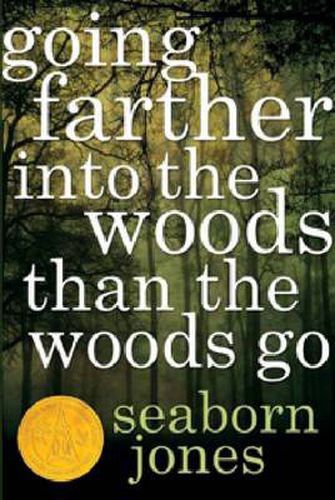Readings Newsletter
Become a Readings Member to make your shopping experience even easier.
Sign in or sign up for free!
You’re not far away from qualifying for FREE standard shipping within Australia
You’ve qualified for FREE standard shipping within Australia
The cart is loading…






Going Farther into the Woods than the Woods Go
opens with the poet speaking from an interior landscape in which life is going too fast and he is lonely and isolated from himself and others. Life is brutal, and the speaker finds himself constantly questioning his self-worth, yet in a surrealistic, witty fashion perhaps best described as black humor.
As the book moves forward, the point of view shifts to a landscape largely identified as a desert. Many of these poems address the horrors of war, with concerns such as political liberation, elections, and the plight of refugees.
In the third section of the book, the point of view shifts to third person. In this section, the speaker confronts the reader and challenges him to face reality, but the speaker poses question that the reader cannot answer. In fact, the reader often finds himself faced with impossible demands at times amounting to a form of blackmail.
Throughout the book, the aloneness and isolation of the individual is the paramount theme; yet, despite the darkness of the poet’s vision, his fresh, vivid imagery, use of wit and humor, and his unique approach to style and content make this book a showcase for one the most interesting and original voices in contemporary American poetry.
$9.00 standard shipping within Australia
FREE standard shipping within Australia for orders over $100.00
Express & International shipping calculated at checkout
Going Farther into the Woods than the Woods Go
opens with the poet speaking from an interior landscape in which life is going too fast and he is lonely and isolated from himself and others. Life is brutal, and the speaker finds himself constantly questioning his self-worth, yet in a surrealistic, witty fashion perhaps best described as black humor.
As the book moves forward, the point of view shifts to a landscape largely identified as a desert. Many of these poems address the horrors of war, with concerns such as political liberation, elections, and the plight of refugees.
In the third section of the book, the point of view shifts to third person. In this section, the speaker confronts the reader and challenges him to face reality, but the speaker poses question that the reader cannot answer. In fact, the reader often finds himself faced with impossible demands at times amounting to a form of blackmail.
Throughout the book, the aloneness and isolation of the individual is the paramount theme; yet, despite the darkness of the poet’s vision, his fresh, vivid imagery, use of wit and humor, and his unique approach to style and content make this book a showcase for one the most interesting and original voices in contemporary American poetry.